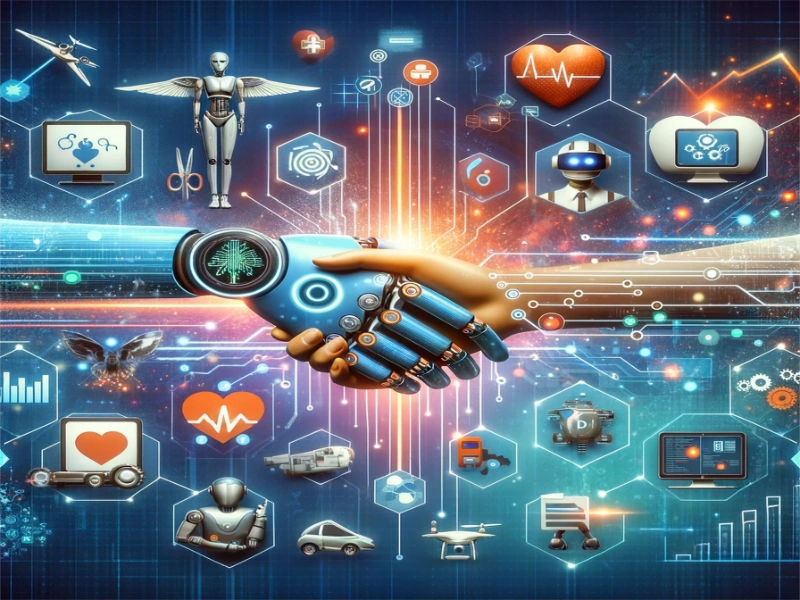- AI seamlessly integrates into daily life, enhancing convenience, efficiency, and productivity through applications like virtual assistants, self-driving cars, and smart devices, transforming various sectors.
- AI enhances daily life with virtual assistants, self-driving cars, and smart devices, improving convenience, efficiency, and productivity across various aspects.
- AI enhances efficiency and innovation by processing data quickly, improving healthcare diagnostics, enabling remote surgeries, and aiding decision-making in various fields.
OUR TAKE
The benefits of artificial intelligence, such as increased efficiency, innovation, and improved quality of life, often outweigh the risks, but ethical, security, and societal concerns must be carefully managed.
–Alaiya Ding, BTW reporter
AI is everywhere, from self-driving cars to virtual assistants, it improves efficiency and convenience. However, ethical considerations, job displacement, and security risks need to be addressed.
AI integration in everyday life
Artificial Intelligence (AI) has seamlessly integrated into various aspects of our daily lives, revolutionizing how we interact with technology. From virtual assistants like Siri and Google Assistant to more complex applications such as self-driving cars and smart appliances, AI’s presence is ubiquitous. Self-driving cars, for instance, use advanced algorithms and vast datasets to make real-time decisions, enhancing road safety and efficiency.
Also read: Baidu CEO Robin Li warns China’s AI boom risks resource crisis
Also read: Equinix and Private AI: Safeguard data, maximize control
Advantages of AI: Efficiency and innovation
The benefits of AI are significant, particularly in terms of efficiency and innovation. AI systems can process and analyze vast amounts of data quickly and accurately, performing monotonous tasks with greater ease and at lower costs. In healthcare, AI enhances diagnostic accuracy and enables remote surgeries, improving patient outcomes. In everyday applications, AI-powered devices like smart thermostats and health trackers enhance comfort and well-being. Moreover, AI’s ability to make intelligent predictions based on data patterns aids decision-making in various fields, from finance to medical research.
Challenges and ethical considerations
Despite its benefits, AI presents several challenges and ethical dilemmas. Bias and discrimination in AI systems, often resulting from biased training data, can perpetuate societal inequalities. Addressing these issues requires developing unbiased algorithms and diverse datasets. Additionally, the ethical implications of AI, especially in critical decision-making contexts, must be carefully considered to avoid negative societal impacts. Privacy concerns also arise from the extensive data collection by AI-enabled devices, necessitating robust data protection measures.
Security risks and cyber threats
AI’s rapid advancement also brings significant security risks. AI technologies can be exploited by cybercriminals to develop sophisticated cyberattacks, posing threats to critical infrastructure and personal data. The increasing use of AI in cybersecurity underscores the need for advanced protection measures. However, AI systems themselves can be vulnerable to manipulation, highlighting the importance of secure AI development and deployment.
Societal impact: Job displacement and inequality
The widespread adoption of AI can lead to job displacement, particularly for low-skilled workers, exacerbating economic inequality. While AI can create new job opportunities, the transition requires significant reskilling and adaptation. The concentration of AI development and ownership within a few large corporations further contributes to economic disparities. Policies promoting economic equity, such as reskilling programs and inclusive AI development, are essential to mitigate these impacts.

